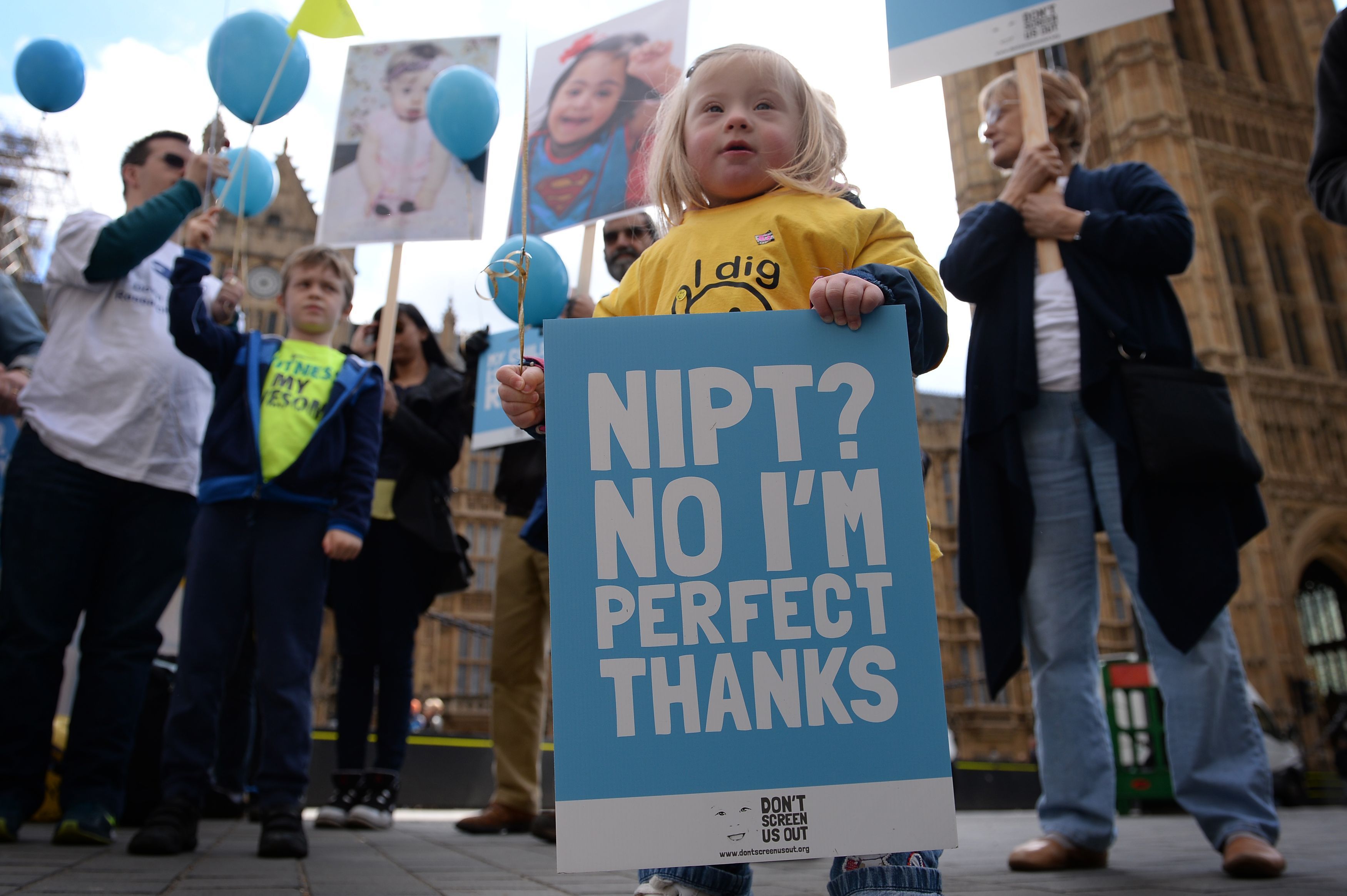People born with Down's syndrome could disappear from the UK almost completely as has already happened in other countries due to advances in testing procedures, the Church of England has warned.
In a paper to be debated by next month's meeting of the General Synod, the Church warns that the place within society of people with Down’s syndrome and even their possible future existence are now under question as a new form of prenatal screening begins to be rolled out this year within the NHS.
"Non-Invasive Prenatal Testing (NIPT) is not intrinsically problematic, but the manner in which it is introduced, understood and administered has the potential to lead to major reductions of Down’s syndrome live births."
In countries such as Iceland and Denmark, which have almost universal screening and close to 100 per cent termination rates, there is a real possibility that people with Down’s syndrome will effectively disappear from their populations, the paper reports. "With a post-screening abortion rate of 90 per cent within the UK, the introduction and potential widespread use of NIPT requires a timely debate on its possible consequences."
There are currently around 40,000 people with Down’s syndrome in the UK, amounting to about one in every thousand live births. Around 750 children with Down’s syndrome are born each year. While the likelihood of having a child with Down’s syndrome increases with maternal age, 80 per cent of children with Down’s are born to women under 35.
The synod will debate a motion calling on the government and relevant professional bodies to ensure that parents who have been told that their unborn child has Down’s syndrome 'to be given comprehensive, unbiased information with regard to this condition."
The Church warns that, while celebrating technological advances that enable women to understand more about the development of their unborn children, an unintended consequence may be that the perceived challenges of living with Down’s syndrome will result in more decisions to terminate. "This, in spite of the growing social awareness that people with Downs syndrome are indeed fully human: in Christian terminology, made in God’s image."
The paper says: "There is no hierarchy in God’s love. God’s love is for all of us, expressed supremely in Christ’s death and resurrection offered for the whole of humankind. Christ’s saving work is offered to everyone and his invitation to us is to respond to the best of our ability, whatever that may be. As outlined below, people with Down’s syndrome have as much to give and share as anyone – their strengths and contributions may sometimes be different from those of others, but they are not less significant or less worthy of cherishing."
It notes that social attitudes have changed, enabling people with Down’s syndrome to achieve their potential more fully. "In this respect, society at large has started to reflect the theological insight that we are all equally human before God."
(Pic: In this file pic from 2016, people with Down's syndrome and their families demonstrate outside the Houses of Parliament in London about the government's plans to introduce a new pre-natal screening technique which is expected to lead to a reduction in the number of children born with the syndrome. Credit: Stefan Rousseau/PA Archive/PA Images.)
See also: Screened out: is a new prenatal test for Down's syndrome eugenics by the back door?



 Loading ...
Loading ...